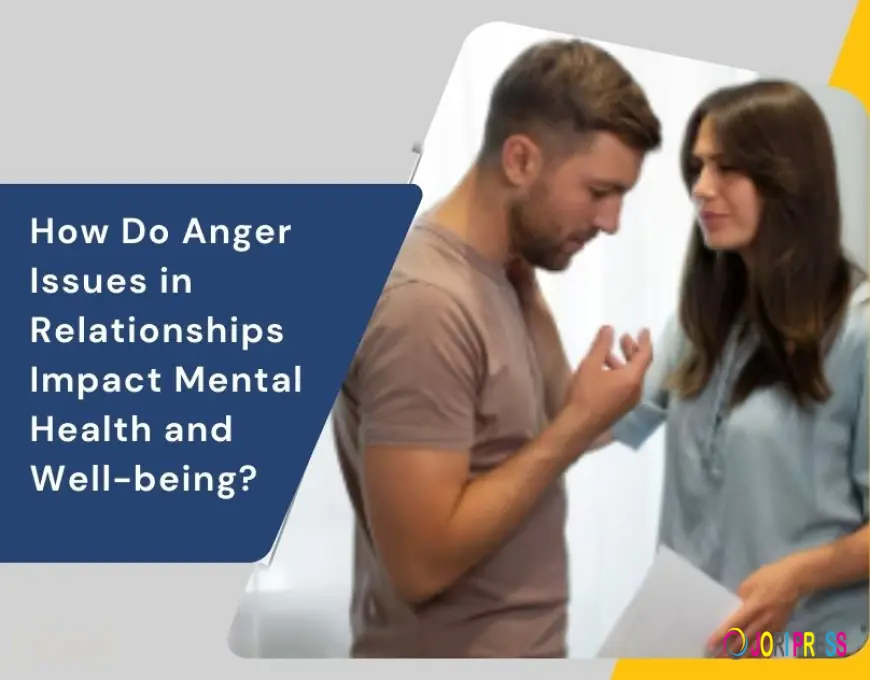How Do Anger Issues in Relationships Impact Mental Health and Well-being?
Discover how anger issues in relationships affect mental health and learn practical ways, including mental resilience training, to build healthier bonds.

Relationships often face challenges, and one of the most common yet overlooked issues is anger. While anger is a natural human emotion, when it turns into frequent outbursts or silent resentment, it can deeply affect the bond between partners. Anger issues in relationships don’t just create distance—they impact the mental health and overall well-being of both individuals. This article explores the ripple effects of unmanaged anger and shares practical ways to rebuild harmony and resilience.
Understanding the Ripple Effect of Anger in a Relationship
Anger by itself is not harmful. It signals that something feels unfair or overwhelming. However, it becomes a problem when expressed through shouting, blame, or emotional withdrawal. When anger takes this destructive form, it affects more than just the immediate moment.
Short-term impacts often include:
For the partner experiencing anger: Fear of confrontation, a constant feeling of “walking on eggshells,” and hesitation to express true feelings.
For the person with anger issues: A sense of guilt after an outburst, difficulty in maintaining patience, and a growing disconnection from their partner.
For the relationship as a whole: Communication breakdown, growing emotional distance, and loss of trust.
Over time, these patterns create an unhealthy cycle, where both individuals struggle to feel safe, heard, and respected in the relationship.
The Deep Impact on Mental Health and Well-being
When anger becomes a recurring pattern in a relationship, the damage goes beyond arguments—it can affect mental, emotional, and even physical health.
For the Person Receiving the Anger
Chronic exposure to anger can lead to long-lasting psychological scars. Many partners report heightened anxiety, feeling constantly on edge, or developing chronic stress. Over time, this stress erodes self-esteem, making them doubt their worth. Some even experience symptoms of depression, such as withdrawal from loved ones, sleep difficulties, and a loss of interest in activities that once brought joy.
For the Person with Anger Issues
Anger often hides deeper struggles. Behind frequent outbursts may lie unresolved feelings of sadness, guilt, or shame. Left unchecked, these emotions intensify, leading to poor self-image and social isolation. The body, too, suffers—anger is linked to high blood pressure, headaches, and even heart problems. On a mental level, it can create cycles of regret and frustration, worsening both mood and relationships.
The cumulative impact of anger issues in relationships is profound. Both partners end up carrying emotional burdens that weigh heavily on their overall well-being.
Building Bridges: From Conflict to Connection
Despite the difficulties, relationships strained by anger are not beyond repair. With consistent effort, couples can move from conflict to deeper connection.
Communication is Key
Use “I” statements instead of blame (e.g., “I feel hurt when…” rather than “You always…”).
Practice active listening, where one partner listens without interrupting.
Choose the right time for difficult conversations—avoiding moments of fatigue or high stress.
Even small changes in communication patterns can reduce misunderstandings and create a safer space for open dialogue.
The Role of Mental Resilience Training
Resilience is the ability to recover from emotional challenges without being overwhelmed by them. In relationships, this skill helps partners respond thoughtfully instead of reacting impulsively.
Mental resilience training can involve:
Mindfulness and meditation, which calm the mind and regulate emotional reactions.
Breathing techniques to manage the body’s fight-or-flight response during tense moments.
Cognitive-behavioral strategies that reframe negative thoughts and encourage constructive responses.
These practices don’t eliminate anger, but they help individuals manage it better, creating a healthier environment for both partners.
When to Seek Professional Guidance
Sometimes, despite best efforts, anger feels unmanageable. Seeking professional help is not a weakness—it’s an act of courage. Therapists and counselors can provide practical tools for anger management, emotional regulation, and conflict resolution.
Guided sessions also help couples understand underlying triggers and rebuild trust. Most importantly, professional support brings hope, reminding couples that it’s possible to heal and grow stronger together.
Conclusion
Anger may be a natural emotion, but its unchecked presence in relationships can erode mental health and happiness. Acknowledging the issue is the first step toward change. With better communication, resilience practices, and professional support when needed, couples can transform anger into an opportunity for growth. Healing is possible, and so is rediscovering peace, trust, and lasting well-being.
What's Your Reaction?
 Like
0
Like
0
 Dislike
0
Dislike
0
 Love
0
Love
0
 Funny
0
Funny
0
 Angry
0
Angry
0
 Sad
0
Sad
0
 Wow
0
Wow
0

















































